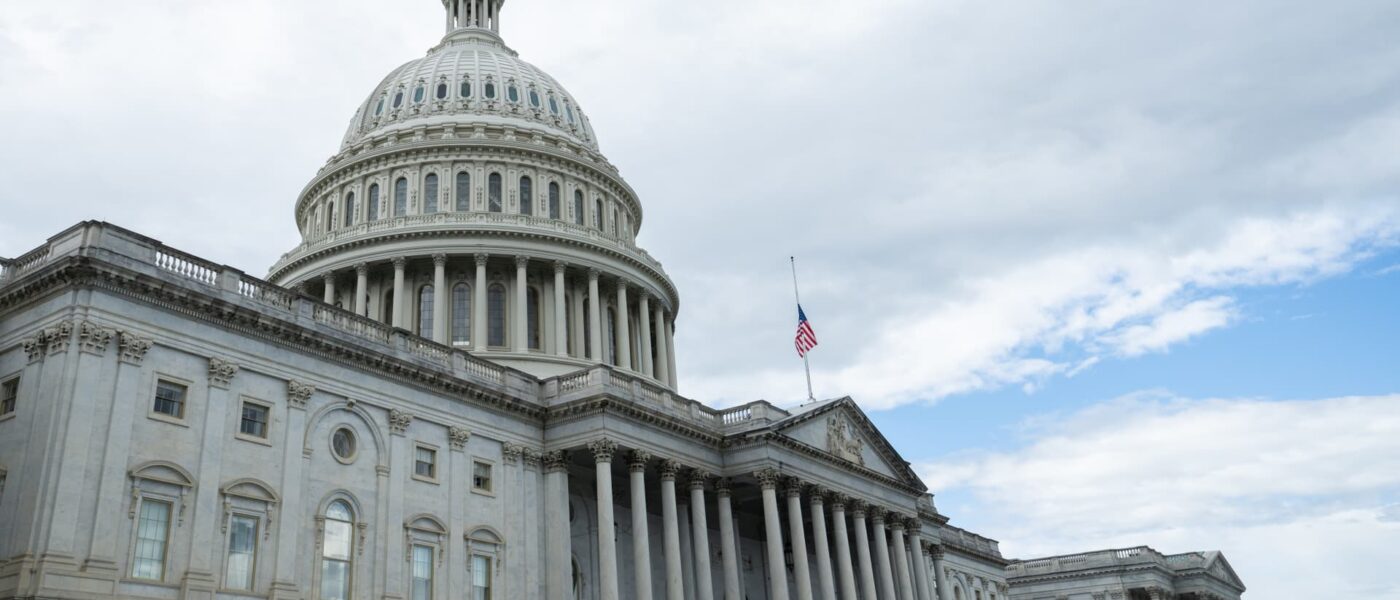What the national debt, deficit mean for your money
Annabelle Gordon/Bloomberg via Getty Images
The massive package of tax cuts House Republicans passed in May is expected to increase the U.S. debt by trillions of dollars — a sum that threatens to torpedo the legislation as the Senate starts to consider it this week.
The Committee for a Responsible Federal Budget estimates the bill, as written, would add about $3.1 trillion to the national debt over a decade with interest, to a total $53 trillion. The Penn Wharton Budget Model estimates a higher tally: $3.8 trillion, including interest and economic effects.
Rep. Thomas Massie of Kentucky was one of two Republicans to vote against the House measure, calling it a “debt bomb ticking” and noting that it “dramatically increases deficits in the near term.”
“Congress can do funny math — fantasy math — if it wants,” Massie said on the House floor on May 22. “But bond investors don’t.”
A handful of Republican Senators have also voiced concern about the bill’s potential addition to the U.S. debt load and other aspects of the legislation.
“The math doesn’t really add up,” Sen. Rand Paul, R-Kentucky, said Sunday on CBS.
The legislation comes as interest payments on U.S. debt have surpassed national spending on defense and represent the second-largest outlay behind Social Security. Federal debt as a percentage of gross domestic product, a measure of U.S. economic output, is already at an all-time high.
The notion of rising national debt may seem unimportant for the average person, but it can have a significant impact on household finances, economists said.
“I don’t think most consumers think about it at all,” said Tim Quinlan, senior economist at Wells Fargo Economics. “They think, ‘It doesn’t really impact me.’ But I think the truth is, it absolutely does.”
Consumer loans would be ‘a lot more’ expensive
A much higher U.S. debt burden would likely cause consumers to “pay a lot more” to finance homes, cars and other common purchases, said Mark Zandi, chief economist at Moody’s.
“That’s the key link back to us as consumers, businesspeople and investors: The prospect that all this borrowing, the rising debt load, mean higher interest rates,” he said.
The House legislation cuts taxes for households by about $4 trillion, most of which accrue for the wealthy. The bill offsets some of those tax cuts by slashing spending for safety-net programs like Medicaid and food assistance for lower earners.
Some Republicans and White House officials argue President Trump’s tariff policies would offset a big chunk of the tax cuts.
But economists say tariffs are an unreliable revenue generator — because a future president can undo them, and courts may take them off the books.
How rising debt impacts Treasury yields
U.S. Speaker of the House Mike Johnson (R-Louisiana) speaks to the media after the House narrowly passed a bill forwarding President Donald Trump’s agenda at the U.S. Capitol on May 22, 2025.
Kevin Dietsch | Getty Images News | Getty Images
Ultimately, higher interest rates…






